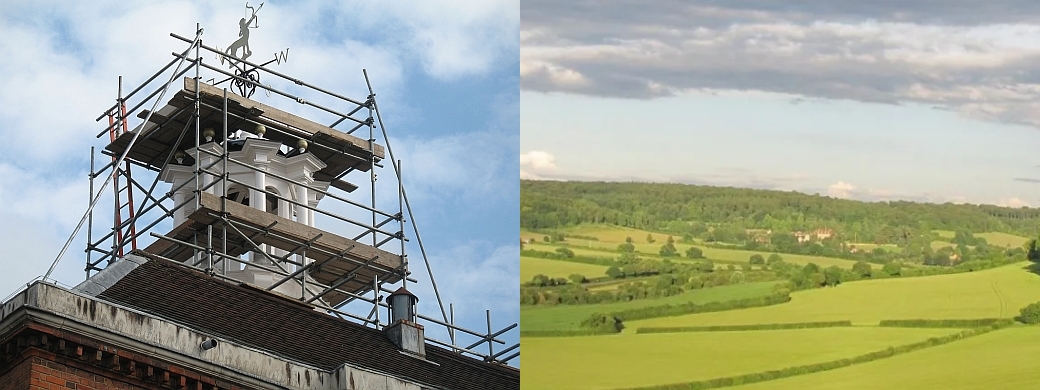I was working under contract to an American company Volt Delta between June and August 1997. I wouldn’t have remembered these dates had it not been for an extraordinary phenomenon just yards from our door in High Street, Egham, Surrey. There was a round wooden bench, big enough to seat 6 people without them encroaching on each others’ space or risking eye contact. One person was sitting there, and there were three bouquets of flowers in the middle. Perhaps someone died near this spot, I thought. But when I returned with a sandwich to eat in the office there was a pile of flowers. Each day it grew.

It soon became obvious. The previous evening I was in the bathroom while my young daughter was brushing her teeth. My wife had the radio on in the adjoining bedroom. We all heard the announcement of Princess Diana’s death in Paris, and not long after a short speech by Prime Minister Tony Blair, as reported by the BBC:
The Prime Minister, Tony Blair, paid a moving tribute to the life and work of Diana, Princess of Wales. He described her as a “wonderful and warm human being”.
Mr Blair, accompanied by his wife and three children, was wearing a black tie and sombre suit. He made his speech outside a church in his Sedgefield constituency in the rain, his voice breaking with emotion.
“I feel like everyone else in this country today. I am utterly devastated,” he said.
“Our thoughts and prayers are with Princess Diana’s family, particularly her two sons. Our heart goes out to them.”
“We are today a nation in a state of shock, in mourning, in grief that is so deeply painful for us,” he said.
“She was a wonderful and a warm human being, although her own life was often sadly touched by tragedy. “She touched the lives of so many others in Britain and throughout the world with joy and with comfort. “How many times shall we remember her in how many different ways – with the sick, the dying, with children, with the needy?
“With just a look or a gesture that spoke so much more than words, she would reveal to all of us the depth of her compassion and her humanity.”
The Prime Minister added: “We know how difficult things were for her from time to time. I am sure we can only guess that. But people everywhere, not just here in Britain, kept faith with Princess Diana.
“They liked her, they loved her, they regarded her as one of the people. She was the People’s Princess and that is how she will stay, how she will remain in our hearts and our memories forever.”
Tony Blair was being creative, promptly weaving a fairy-tale version of a quite different truth.
Looking back across 20 years it is sometimes easy to forget that Diana was not some remote royal whose death was a sudden, surprising thing that came out of nowhere. In the months before, she had appeared with almost exhausting regularity on the front pages of the newspapers, and indeed had a profile that today we rarely see among the royals.
There was an obsession with Diana, her every move was checked and documented and filed. The tabloids led on the most spurious stories for days on end. For a newspaper editor, those must have been the glory days. Where today the red-tops busy themselves with the minutiae of the movements – one, suspects, carefully choreographed by legions of PR executives – of instantly forgettable reality TV stars, back then there was an actual, honest-to-God princess providing the headlines.
The next post will show what it was like to work in an American company. In particular I’ll set out my own role in testing keyboards specially designed for swift response to directory enquiries across Holland. Our client was Nederland Telekom.

